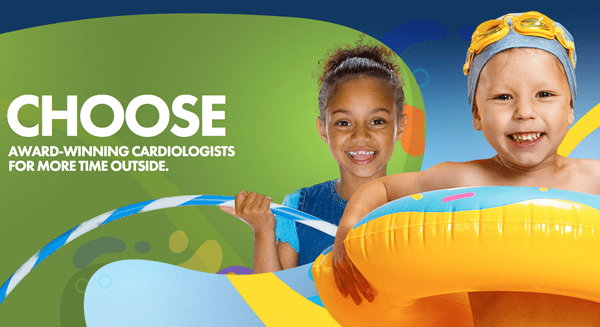Recognizing and Treating Your Child’s Congenital Heart Defect
Learning that your baby has a congenital heart defect can be scary, and while health challenges can exist, the outlook for most children is positive. Although congenital heart defects are serious, most types of the disease can be treated, allowing your child to live a productive and fulfilling life.
What Is a Congenital Heart Defect?
A congenital defect is something your baby is born with. It usually refers to a problem with how the heart was formed before birth. The heart development is a very complex process that takes place primarily in the first trimester of pregnancy. Between the third and eighth weeks of pregnancy, that organ transforms from a long, pulsing tube into a heart. If the heart doesn’t develop properly during this or the remaining two trimesters, your baby will have a heart defect at birth.
Symptoms of a Congenital Heart Defect
A heart defect may be detected before birth, via an ultrasound. Infants may be so-called "blue babies" at birth due to decreased oxygen in the blood as a result of restricted blood flow to the lungs or the mixture of blood that has different levels of oxygen in it.
Or, symptoms may arise during the first days or weeks of life. Babies may feed poorly, have poor weight gain and breathe rapidly. Some babies with very severe forms of congenital heart defects may have circulatory collapse and shock early in infancy.
For some children, congenital heart disease is discovered when a routine doctor’s visit uncovers a heart murmur, and the child is referred to a pediatric cardiologist. It is important to understand that the vast majority of murmurs in childhood are innocent in nature and simply represent normal flow through the heart and blood vessels of the chest. Usually your doctor can tell this by listening to a murmur with the stethoscope.
Still, some people with more subtle forms of congenital heart disease may not know that they have congenital heart disease until they are older children, teens or even adults.
Children with a heart defect commonly experience shortness of breath on exertion, cyanosis ("blueness"), chest pain, murmurs, palpitations and fainting. Many of these symptoms are very nonspecific. But a thorough evaluation by your primary care pediatrician will determine if your child requires a referral or if the symptoms stem from a different problem.
Treating Congenital Heart Disease
Not every child with a congenital heart defect requires treatment. However, most require evaluation by a pediatric cardiologist to determine if and when treatment should be given. We have very specific guidelines based on research and observation that determine when your child requires surgical intervention. Most conditions require observation through infancy and childhood into adolescence and adulthood.
The treatment for congenital heart disease varies, depending on your child’s specific condition. Many conditions require open heart surgery and some may need more than one procedure as your child grows. Fortunately, we can treat many conditions using a less invasive transcatheter approach or a combination of surgery and transcatheter techniques. Regardless of the technique, the goal is always to decrease the amount of trauma that your child experiences while still achieving the optimal results for their lifetime.
Although many patients may have surgical interventions over their lifetime, they also attend school, play sports and grow up to have families of their own. True, there may be challenges, including with attention and learning. However, children who have had surgery or transcatheter treatment for congenital heart disease have gone on to become accomplished professionals, teachers, doctors, nurses, mothers and fathers, skilled trades people, artists, actors, sports professionals and Olympic athletes.
Today, treatment options are available for most types of congenital heart disease. Even people with the most severe forms of congenital heart disease can lead fulfilling lives, recognizing they may need medications and possibly transplantation at some point. As research and techniques develop to help doctors identify and address heart issues earlier and more effectively, the outlook for children living with congenital heart defects will continue to improve.
Choose Award-Winning Cardiologists For More Time Outside
The Heart Center at Orlando Health Arnold Palmer Hospital for Children brings together a specialized, multidisciplinary team offering the most experienced and comprehensive care in Central Florida for infants, children and teens with heart disease — delivering the personalized, loving care your child needs to heal.
Learn More





